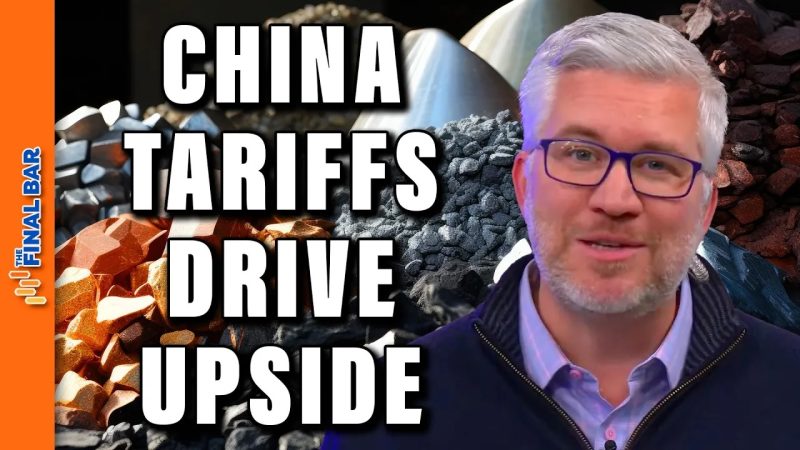China Tariffs Drive Upside for Rare Earth Minerals
The recent imposition of tariffs by China on rare earth minerals has had far-reaching implications across various industries. Rare earth minerals, a group of 17 elements critical for the production of a wide range of technologically advanced products, have become central to the ongoing trade tensions between China and the United States. This has sparked concerns about supply chain disruptions and has prompted a closer look at alternative sources of these crucial minerals.
One of the main repercussions of China’s decision to impose tariffs on rare earth minerals is the potential for a significant increase in prices for these crucial elements. As China currently dominates the global rare earth market, accounting for a majority of production and supply, the tariffs have raised fears of a shortage and subsequent price hikes. This has created an opportunity for rare earth mining companies outside of China to capitalize on the situation and increase their production to meet the growing demand.
In response to the tariffs, countries such as the United States, Australia, and Canada are ramping up efforts to develop their own sources of rare earth minerals. This shift towards diversifying the supply chain for these critical elements is a positive development for the industry as it reduces dependence on a single source and fosters competition in the market. By investing in domestic rare earth mining projects, these countries aim to secure a stable supply of these minerals and reduce their vulnerability to geopolitical uncertainties.
Furthermore, the tariffs imposed by China have underscored the importance of technological innovation and recycling in the rare earth industry. With the increasing demand for rare earth minerals driven by the rise of electric vehicles, renewable energy technologies, and electronic devices, there is a growing need to find sustainable solutions for sourcing these elements. This has led to a renewed focus on recycling rare earth minerals from electronic waste and developing new extraction technologies that minimize environmental impact.
Another significant implication of the tariffs on rare earth minerals is the potential for geopolitical tensions to escalate further. As rare earth minerals play a crucial role in the defense and technology sectors, any disruption in the global supply chain could have far-reaching consequences for national security and economic stability. This has prompted countries to reassess their strategic reserves of rare earth minerals and explore partnerships with allies to ensure a secure and reliable supply of these critical elements.
In conclusion, the tariffs imposed by China on rare earth minerals have highlighted the need for a more diversified and sustainable supply chain for these essential elements. While the current situation poses challenges for industries reliant on rare earth minerals, it also presents opportunities for countries to develop their own sources of these critical elements and promote innovation in the sector. By addressing the issues of supply chain vulnerability and environmental sustainability, the rare earth industry can navigate through these turbulent times and emerge stronger and more resilient in the face of future challenges.

